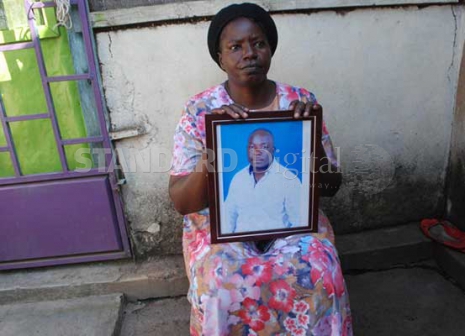×
The Standard e-Paper
Smart Minds Choose Us

Mary Awuor holds her husband’s portrait on her lap at her Shaurimoyo home in Kisumu County on a Monday morning.
It is almost one year since the father of her two children died from bullet wounds at Tivoli Centre, along Jomo Kenyatta Highway in Kisumu.